






Kirsten Martens
140 Av. de la physique BP 87
F-38402 Saint Martin d'Hères
France
Phone: +33 4 76 51 47 41
Fax: +33 4 76 51 45 44
E-mail:







Main collaborators
Michel Droz (University of Geneva)
Eric Bertin (LIPhy, Grenoble)
Olivier Dauchot (ESPCI, Paris)
When effective temperatures depend on the observable
The fluctuation-dissipation theorem states that the dynamical response of an equilibrium system to a small perturbation is proportional to a correlation function with the proportionality factor given by the equilibrium temperature. In recent times it has been popular to define nonequilibrium temperatures from generalized fluctuation-dissipation relations. But is this temperature always independent of the observable considered?
We show that within a certain class of models, the effective temperature indeed depends on the chosen observable. For the physical reason behind this non-universality, we can identify the fact that the probability of the microstates is no longer distributed uniformly across an energy shell. This insight also allows us to link the observable dependence of the effective temperature to the entropy difference quantifying the non-uniformity of the phase space distribution. The results are illustrated on a mean-field model in contact with two heat baths at different temperatures.
Dependence of the Fluctuation-Dissipation Temperature on the Choice of Observable

Scheme of the meanfield model: